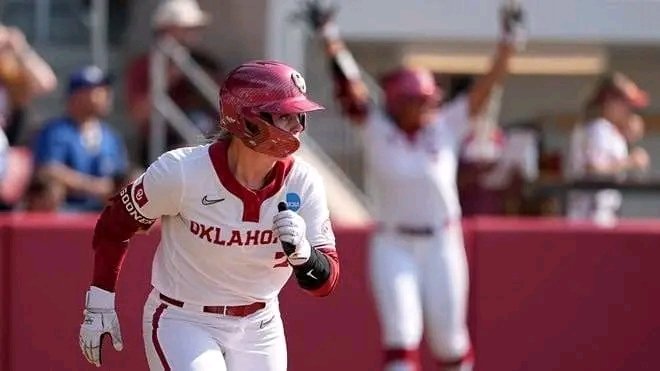
When Maya Jenkins, a five-star recruit out of California, arrived at Oklahoma, she carried more than just her bat and glove. With her came the hopes of a program, the dreams of a community, and the burden of perfection that often shadows young athletes crowned too early. Her resume sparkled: national accolades, travel ball championships, and highlight reels that made her look invincible. But what the cameras didn’t see was a young woman unraveling beneath the surface. “I was the girl who smiled for the cameras,” Maya says now, “but behind it all, I was falling apart.” The reality was harsher than the headlines. Behind her polished swing and explosive speed, Maya battled crippling anxiety and a fractured sense of self that threatened to take everything from her—including the game she once loved.
The road to Oklahoma had not always been paved in gold. In high school, Maya dominated the field, but the constant scrutiny and intense competition began to erode her mental health. Every error felt catastrophic, every strikeout a failure not just of skill but of identity. Coaches, hungry for results, often yelled instead of listened. Her smile became armor, her silence a coping mechanism. At showcases, she felt like a performer more than a player. “I remember sitting in the car after a game and just crying,” she recalls. “Not because I played poorly, but because I didn’t know who I was outside of softball.” By the time she stepped onto Oklahoma’s campus, Maya was exhausted—not just physically, but emotionally. She feared she would crumble under the very expectations she had once worked so hard to earn.
College only amplified the pressure. The competition was fiercer, the stakes higher, the spotlight brighter. Maya’s freshman year was a blur of workouts, games, interviews, and sleepless nights. Her anxiety manifested in different ways—nausea before games, panic attacks in quiet dorm rooms, and a constant, gnawing fear that she wasn’t enough. Though she put up decent numbers, the joy was gone. Coaches noticed her hesitancy, her reluctance to take risks. “You’ve got all the tools,” they told her. “You just need to believe in yourself.” But belief isn’t something you can summon on command. For Maya, it would take hitting rock bottom before she began the slow climb back to herself.
That turning point came during a weekend series her sophomore year. After a costly error and a hitless performance, Maya sat alone in the dugout long after the game had ended. A teammate found her, eyes red, knees tucked to her chest. That teammate didn’t offer stats or clichés—just presence. “You don’t have to be perfect to be loved here,” she whispered. Those words cracked something open. Maya began to seek help. Therapy sessions replaced extra batting practice. She started journaling, meditating, and having honest conversations with her coaches. Slowly, her confidence returned. Not because the pressure disappeared, but because she learned to detach her worth from her performance. “Softball is what I do,” she says, “not who I am.”
Now a senior, Maya Jenkins is thriving—not just on the field, but as a person. She leads the team in stolen bases and serves as a mentor to younger players navigating their own paths. But her proudest accomplishment isn’t a stat—it’s the resilience she’s built and the conversations she’s started. She’s spoken openly about mental health at university events, helping to de-stigmatize the struggles many student-athletes face. Her story is no longer one of silent suffering, but of courage, community, and reclamation. “I used to think strength was pretending everything was okay,” Maya says. “Now I know real strength is being honest—even when it’s hard.” And with every swing, every sprint, every smile that now comes from a place of truth, Maya Jenkins proves that being human is her greatest power of all.
Leave a Reply